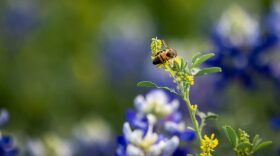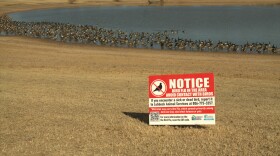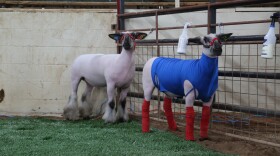-
Quail hunting season kicks off in Texas on Saturday. Our Bishop Van Buren reports the Texas Parks and Wildlife Department says it is encouraged by population numbers, but quail hunting at the Lake Alan Henry Wildlife Mitigation Area has been canceled again this year. Experts say Texas is still experiencing a teacher certification crisis. KERA's Bill Zeeble reports students could pay the price, even after new state legislative efforts begin.
-
The long-anticipated park in downtown Lubbock has raised enough funds to begin construction. Officials expect construction to take 9-10 months, and be completed by the end of next year. Dove hunting season begins in Texas today. Texas Public Radio’s Jerry Clayton has the details. Lubbock's city offices are closed today for Labor Day, affecting residential trash collection, landfill operations, libraries, museums, community and recreation centers, and public health.
-
Texas Tech researcher develops first-of-its-kind medicated wildlife feed, boosting quail populationsQuail populations across Texas have been plummeting for decades. But now, a Texas Tech researcher and his team may have turned that trend around with the invention of a medicated wildlife feed that’s been approved by the FDA and is now commercially available.
-
White tail deer season is underway
-
Hunters are always in search of the best deer they can find - the bigger the buck, the better. "Captive deer-farming" provides "superior" genetic…

Play Live Radio
Next Up:
0:00
0:00
Available On Air Stations












